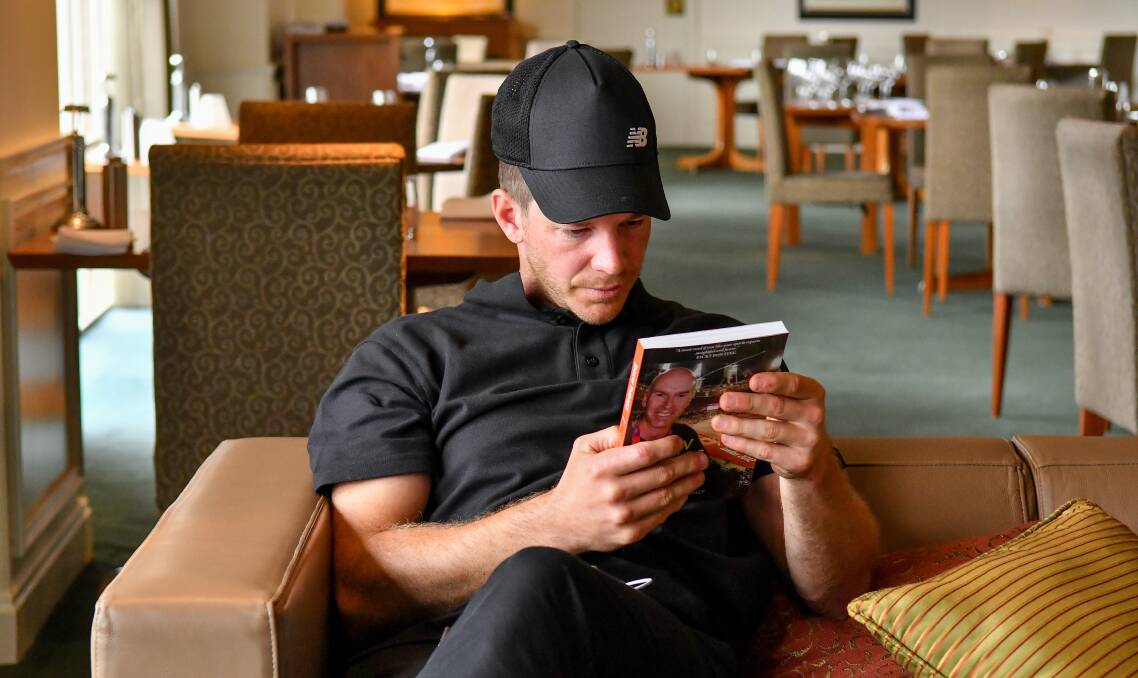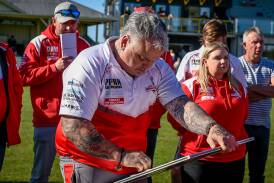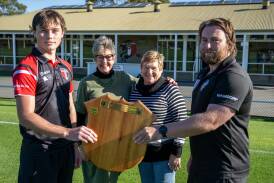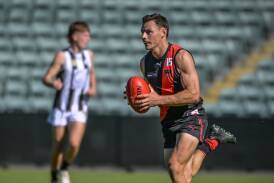
Leading into the Second Test, it was widely reported that Tim Paine's batting average of 33.40 made him Australia's second-best wicket-keeper of all time.
Subscribe now for unlimited access.
$0/
(min cost $0)
or signup to continue reading
However, an equally significant criteria actually positioned him one place higher.
In that Adelaide Test against India, the Tasmanian passed 150 dismissals for his country.
When averaged out across his 33 Test appearances, Paine's total of 143 catches and seven stumpings equated to 4.59 per match.
In contrast, Adam Gilchrist - whose freakish batting and 47.60 average redefined the role and expectations of a wicket-keeper - averaged 4.33 dismissals over his 96-match Test career.
Paine surpassed all other modern-day contenders in both measurements.
Brad Haddin averaged 32.98 with the bat and 4.09 with the gloves.
The only major career stat in which Haddin exceeded Paine was longevity, having played twice as many Tests, and this only because the latter could not usurp the former from his incumbent position.
Ian Healy's 11-year, 119-match Test career produced averages of 27.39 with bat and 3.32 with gloves.
On average Paine contributes six runs and one dismissal more every match.
Makes you wonder how Healy ever got a game.
And as for Rodney Marsh, just 26.51 and 3.70.
Yet he is revered by many Aussies as the nation's benchmark wicket-keeper.
Respected ABC commentator Jim Maxwell has called the current Test batting line-up the most fragile he has seen representing Australia, particularly if Steve Smith goes cheaply, which he did in both opening Tests with scores of 1, 1*, 0 and 8.
In Adelaide, Paine came to the crease with his team in what James Brayshaw would call "all sorts" at 5-79.
An unbeaten 73 runs later, at a 73.74 strike-rate superior to all teammates except last-man-out Josh Hazlewood, kept the Aussies in the fight and set up the remarkable second innings rout of 36 in which half the dismissals were accompanied by "c Paine".
The 36-year-old's innings combined with his glovework earned a fully deserved man of the match award despite bowlers returning figures as stunning as Hazlewood's 5-9.
Paine's third job requirement is one largely alien to his predecessors.
Aside from Gilchrist taking charge of six Test matches, mostly when Ricky Ponting was injured, none of those aforementioned wicket-keepers were encumbered with Test captaincy.
Paine infamously assumed the role in Stephen Bradbury style, when more obvious candidates fell over spectacularly in front of him in South Africa in March 2018.
Despite being branded his nation's accidental captain, Paine has overseen the rebuilding of not just the team's performance but, perhaps more importantly, its reputation.
Among his initial changes was the simple but effective introduction of opposing teams exchanging handshakes as a mark of mutual respect - a commodity which had been sorely missing in previous contests.
Such has been the turnaround that the ABC's Offsiders columnist Richard Hinds recently wrote an article headlined: "Australian cricket's team of choirboys are an elusive combination of likeability and excellence."
It concluded: "The influence of Tim Paine's leadership is profound, although it might not have been until ... his innings-saving 73 not out silenced the final critic of his appointment."
Not many journalists were using the description "choirboys" in Cape Town.
Paine's 11 wins and three draws from his 20 games in charge to that point might not put his winning percentage alongside the likes of Ponting or Steve Waugh, who had the pleasure of leading magnificent teams.
But he has shown a natural affinity for the responsibility of leadership.
Composed and confident, informative and insightful, he is extremely comfortable with the media, has conducted countless Zoom interviews in recent months and is as chatty in press conferences as when within earshot of Rishabh Pant.
Paine's sharp wit has also not gone unnoticed.
Launching a business venture together in Hobart in August, George Bailey greeted his long-time state teammate with the observation: "You're looking fit", to which Paine swiftly replied: "Always good to hear from a selector."
Since his impressive 73, disappointing innings of 13, 1 and 1 saw Paine's average drop back below Haddin before an unbeaten 39 took it to 32.38.
This has done little to dent his authority and - perhaps surprisingly for a Tasmanian - his national popularity.
The rest of the country is catching up on what Tasmanians have long known.
Even the under-performing Healy has said Paine could retain the captaincy for another three years at least.
As one colleague observed when discussing the subject: "If Painey was from NSW they'd already have a statue of him."










